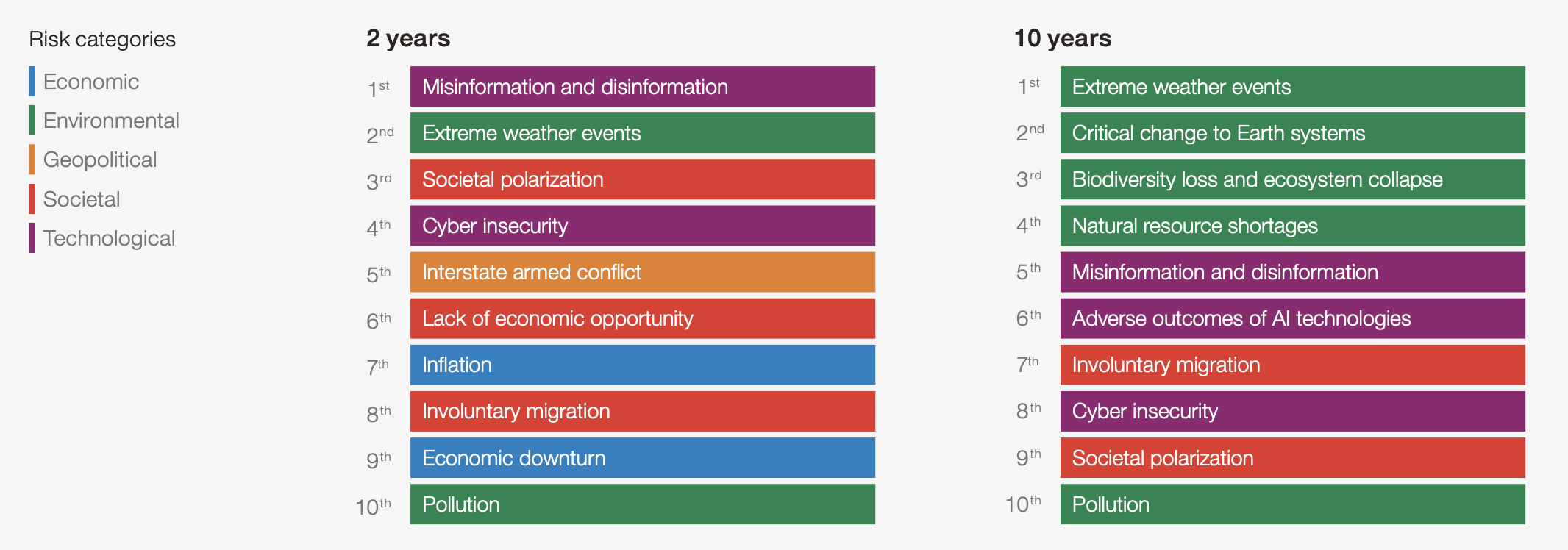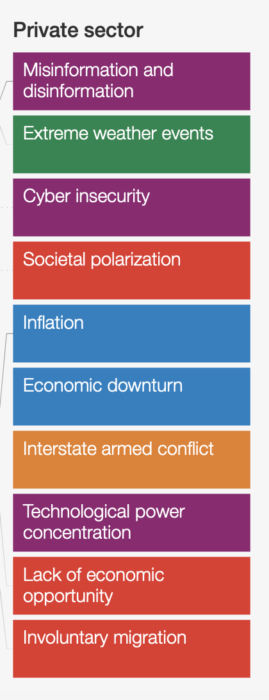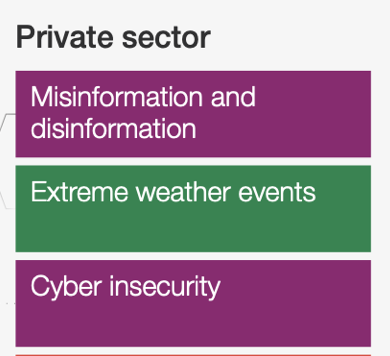Navigating Future Risks and Opportunities: Insights from WF Global Risks Report 2024
In today’s rapidly evolving world, understanding and preparing for future challenges is crucial. The World Economic Forum’s “Global Risks Report 2024” provides a comprehensive analysis of the potential risks facing our global community, while also shedding light on the hopeful strategies that corporations and individuals can adopt to navigate these challenges.

Key Risks Outlined in the Report:
- Global Outlook Deterioration: The report anticipates a predominantly negative global outlook, foreseeing increasing instability and potential global catastrophes.
- Environmental Concerns: Extreme weather events and irreversible climate change impacts are at the forefront of environmental risks.
- Societal and Technological Polarization: The growing societal divide and unchecked technological risks, like misinformation, are major concerns.
- Economic Challenges: The report highlights the cost-of-living crisis, inflation, and potential economic downturns as significant economic strains.
- Geopolitical Tensions: Rising geopolitical tensions and potential conflicts are noted as key risks.
- Governance Challenges: The report discusses global governance challenges, impacting cooperation on global risks.
For the Private Sector the key issues are

Strategies for the Future:
Corporate boards and policymakers play a pivotal role in this journey. They are not just risk mitigators but also opportunity creators. By fostering constructive dialogues, prioritizing research and development, and encouraging innovative solutions, they can lead the way in shaping a more resilient and optimistic future.
- Dynamic Future Possibilities: The future is not set in stone. A range of possible futures provides room for hope, rebuilding trust, optimism, and resilience in our institutions and societies.
- Collective Action and Innovation: The power of collective actions and innovation is significant. Individual, company, and country-level actions, although seemingly small, can collectively reduce global risks.
- Fiscal Incentives and Philanthropy: Using fiscal incentives to spur innovation and the role of philanthropy in funding ambitious projects can be key in addressing future challenges.
The report serves as both a warning and a call to action. It urges us to prepare for potential risks while also seizing the opportunities to create a safer, more prosperous, and equitable world for future generations. The path ahead is complex, but with collective effort and strategic foresight, we can navigate it successfully.
As cyber insecurity and disinformation is identified as two of the highest risks, make sure you;
*contribute to our ongoing research and fill in the survey, run in collaboration with MIT Sloan, Digpshen, Boards Impact Forum and ILA, all information is confidential and the survey takes around 10 min, Link to Survey
* join the Webinar and Peer Exchange on January 23 with Dr & NED Keri Pearlson, together with the NEDs Jan Wäreby, Bente Sollid Storehaug and Martin Althen, Join the Webinar here .
Make sure you also explore our upcoming Certification program “Boards oversight of Responsible AI for Value Creation”
These insight from WEFs risk report can be enriched and continuously kept updated, and approaches for the business and for the personal leadership view can be found in the blogpost “Design the Future with an Impactful 2024 Map.” By Digoshen
____________
This blogpost is originally shared at the blog of of Digoshen, www.digoshen.com.
Events arranged by Boards Impact Forum in collaboration with World Economic Forum (Non Profit Board Network, partnering with Board Networks , INSEAD Corporate Governance Centre )
About Boards Impact Forum









Recent Comments